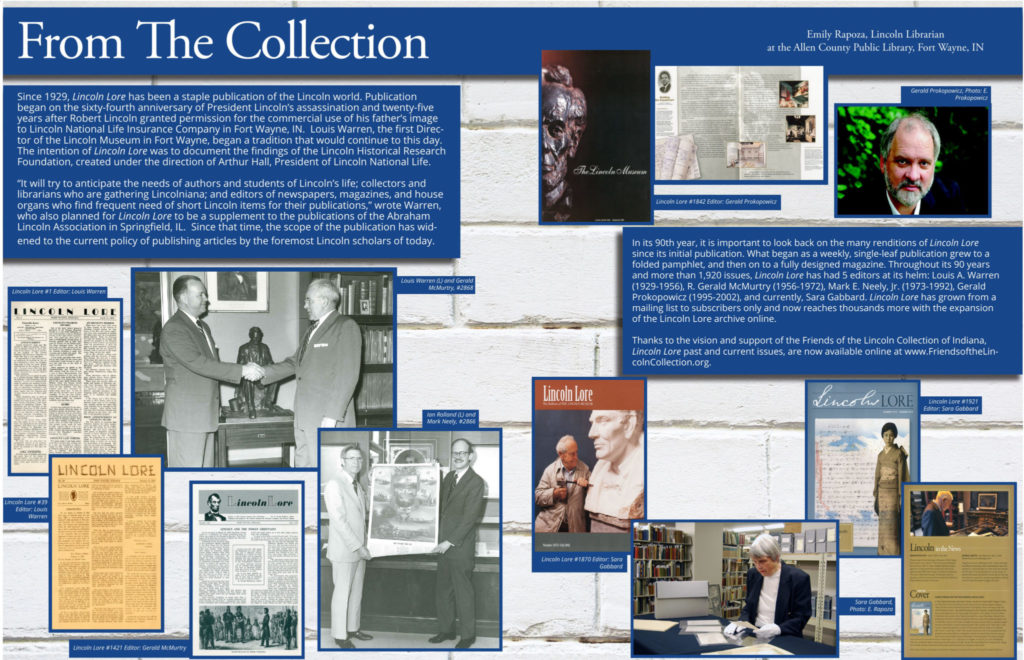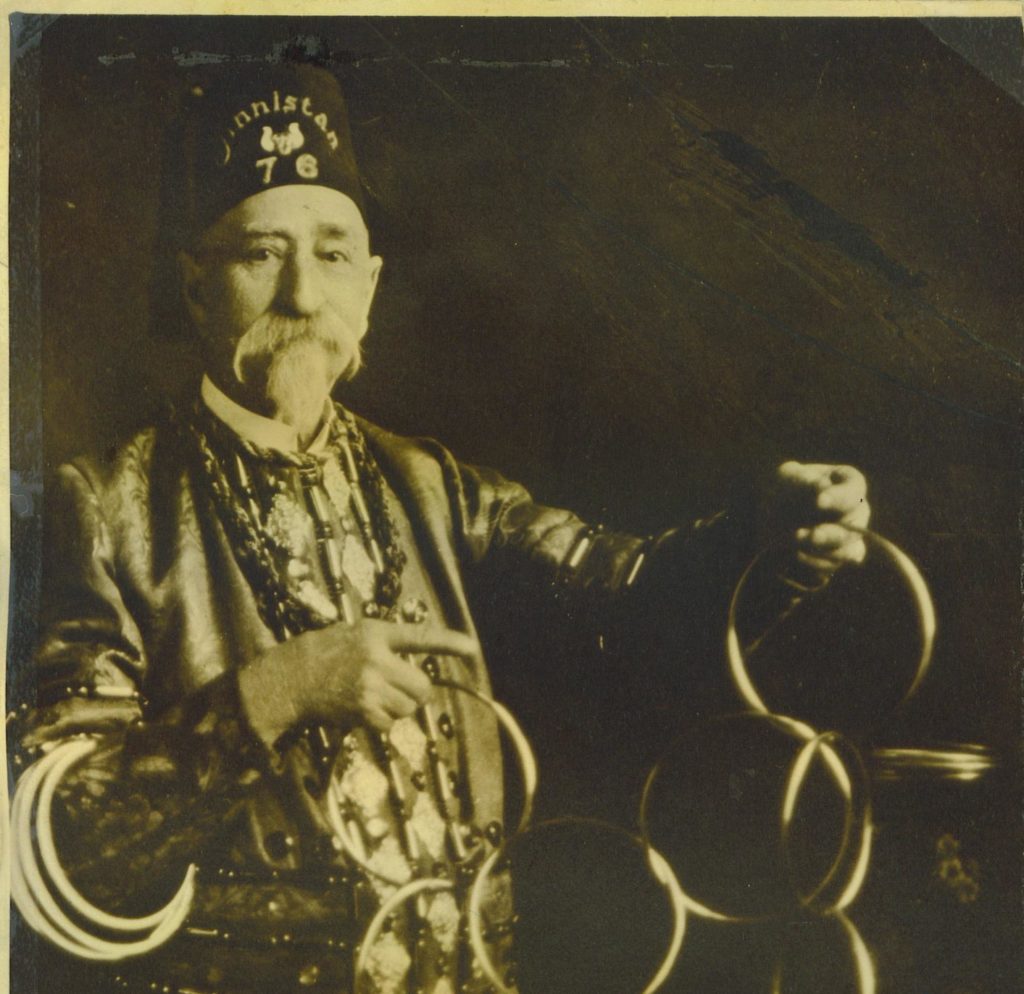
Lincoln’s Magician: The Saga of Captain Horatio G. “Harry” Cooke
by Jason H. SilvermanThe author wishes to express his deep gratitude and appreciation to professional magicians par excellence, Dean Carnegie and Mark Cannon, for their crucial assistance with this article. They generously provided me with some very important primary sources and much needed materials for this article. The name Horatio Green “Harry” Cooke is not one usually bandied […]
Read More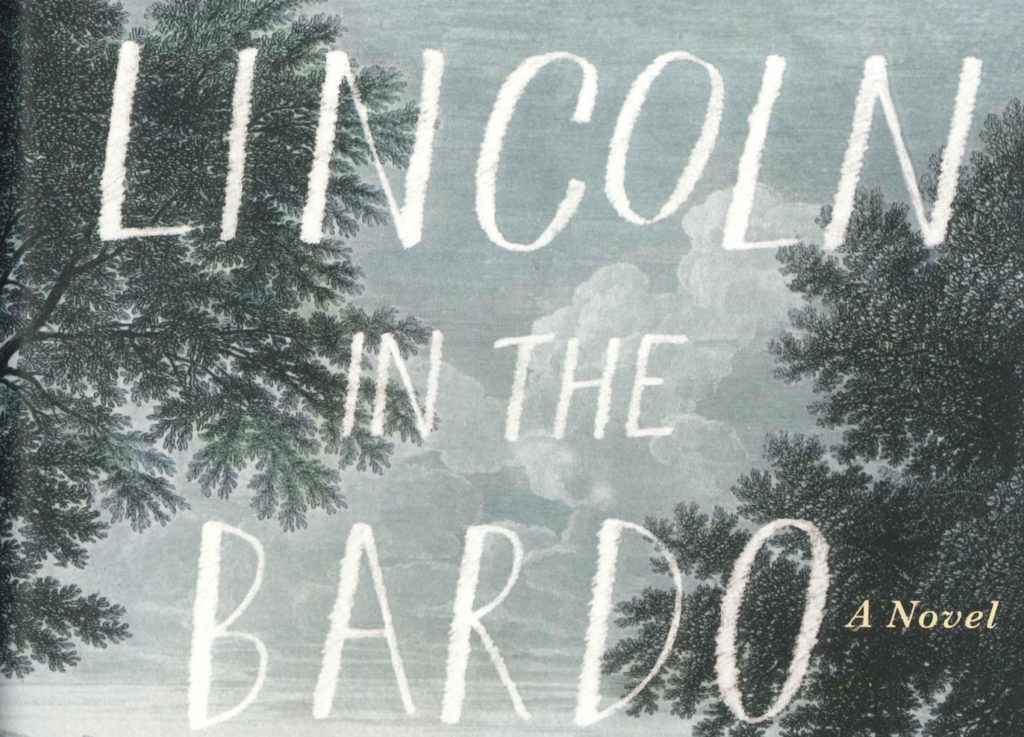
An Interview with George Saunders, Author of Lincoln in the Bardo
by Craig KlugmanGeorge Saunders’ novel, Lincoln in the Bardo, is exhilarating and experimental. It was a New York Times and USA Today best seller, and it won the Man Booker Prize in 2017. It may make you cry in parts and laugh in some others. It will certainly make you think. The novel is written in usually […]
Read More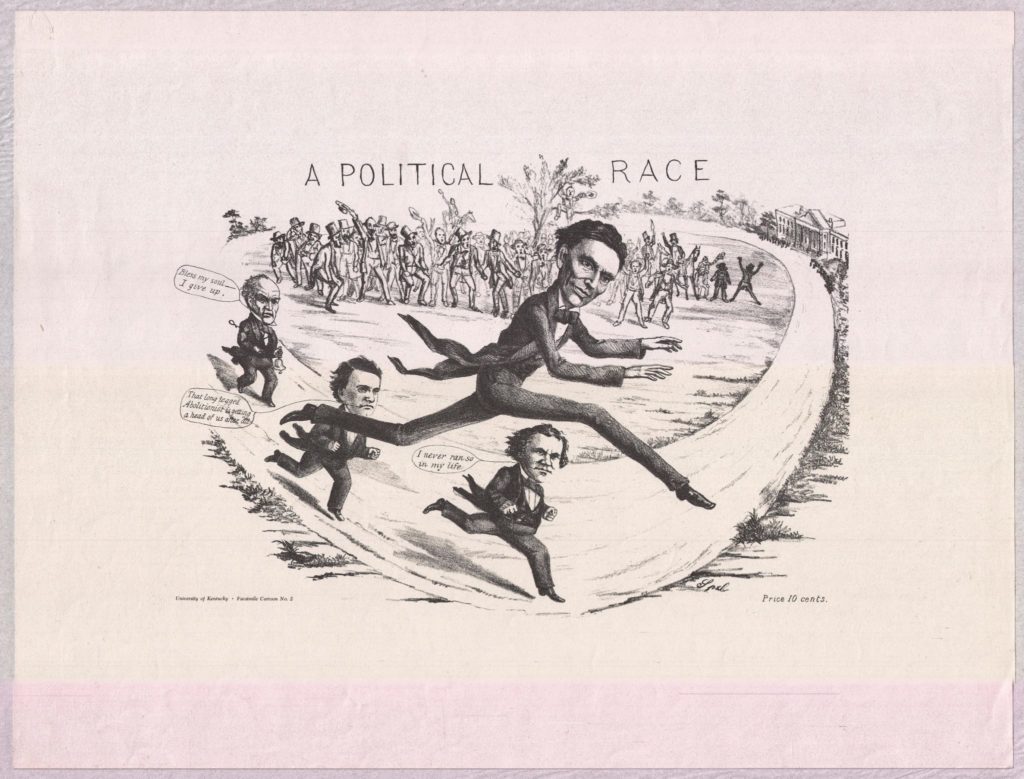
“Just the Wood out of which Washington Presidents are Carved”: Electing Lincoln in 1860 by Alan Guelzo
by Allen C. GuelzoThe day after Abraham Lincoln came from behind a well-populated field of potential candidates to win the Republican party’s nomination for president of the United States, an “annoyed and dejected” Thurlow Weed packed his bags and prepared “to shake the dust of the city” of Chicago “from my feet.” Weed was the long-time editor of […]
Read More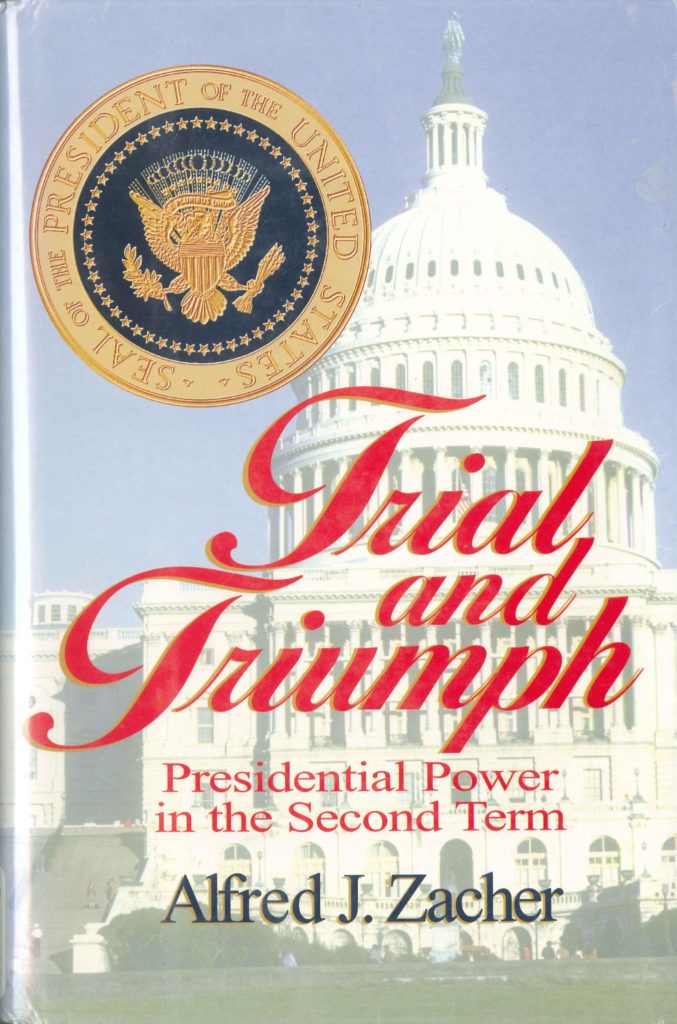
An Interview with Alfred J. Zacher
by Alfred J. ZacherSara Gabbard: Which presidents do you believe showed the greatest leadership skills. Al Zacher: Strong presidential leadership might be defined as the ability of a president to pursue major objectives to fulfillment. This requires perseverance, support of the public and of Congress if their approval is required. This is an understatement, but it provides […]
Read More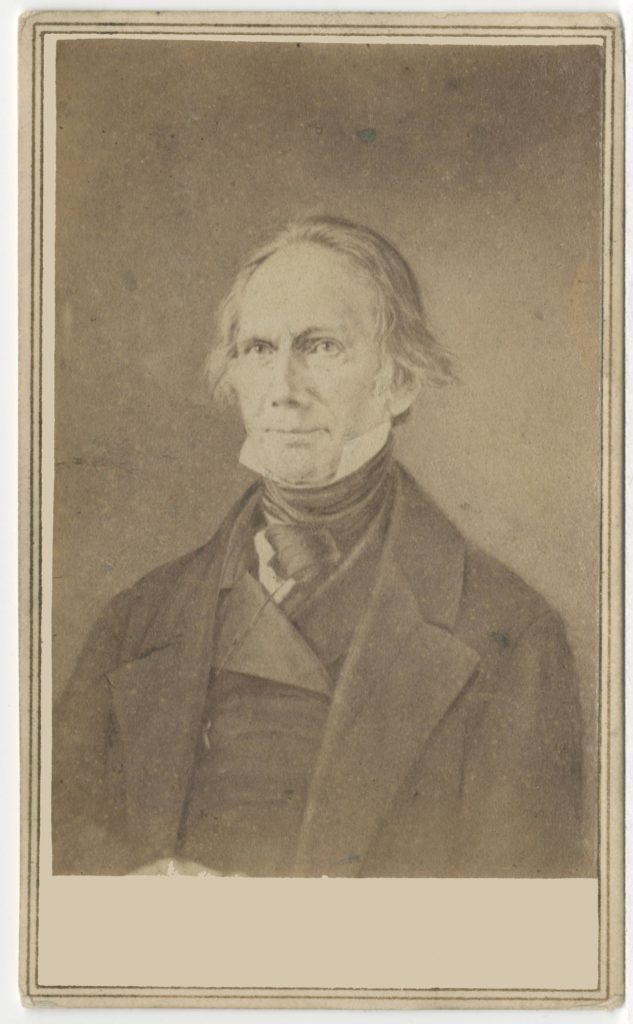
An Interview with John Marszalek on Henry Clay, Lincoln’s “Beau Ideal” of a Statesmen
by John MarszalekSara Gabbard: Please explain Clay’s early legal representation of Aaron Burr. Did the relationship cause him later regret? John Marszalek: In the early 19th century, Henry Clay and Aaron Burr were both young up-and-comers in American politics. Yet, Clay became one of the most famous of all 19th century Americans, while Burr never lived down […]
Read More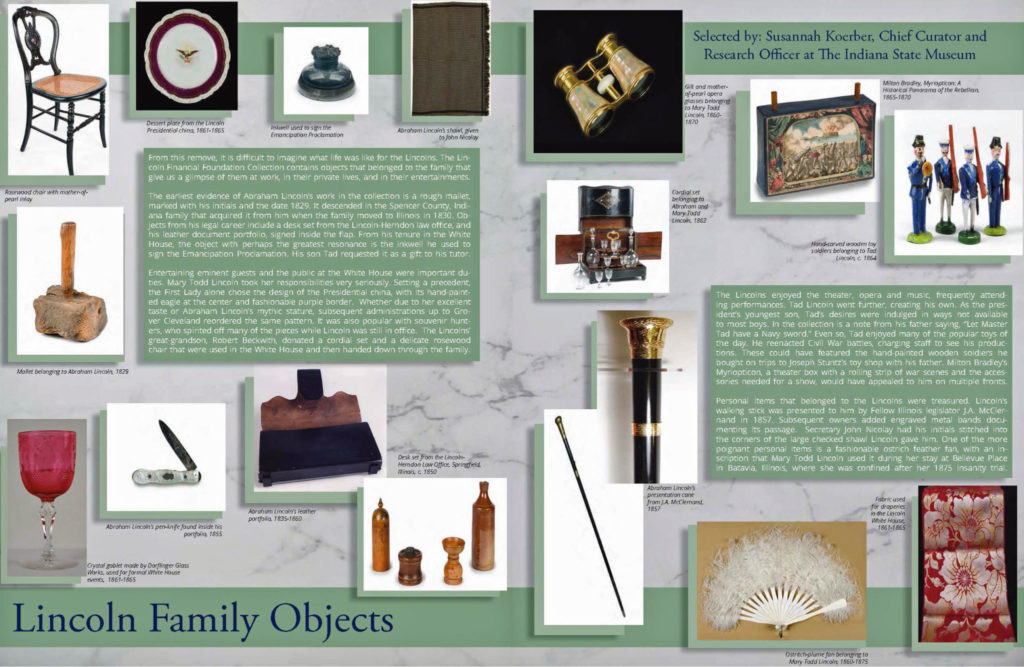
From The Collection: Lincoln Family Objects
by Susannah KoerberTo view the article in a larger format, click the photo above to open in a new window.
Read More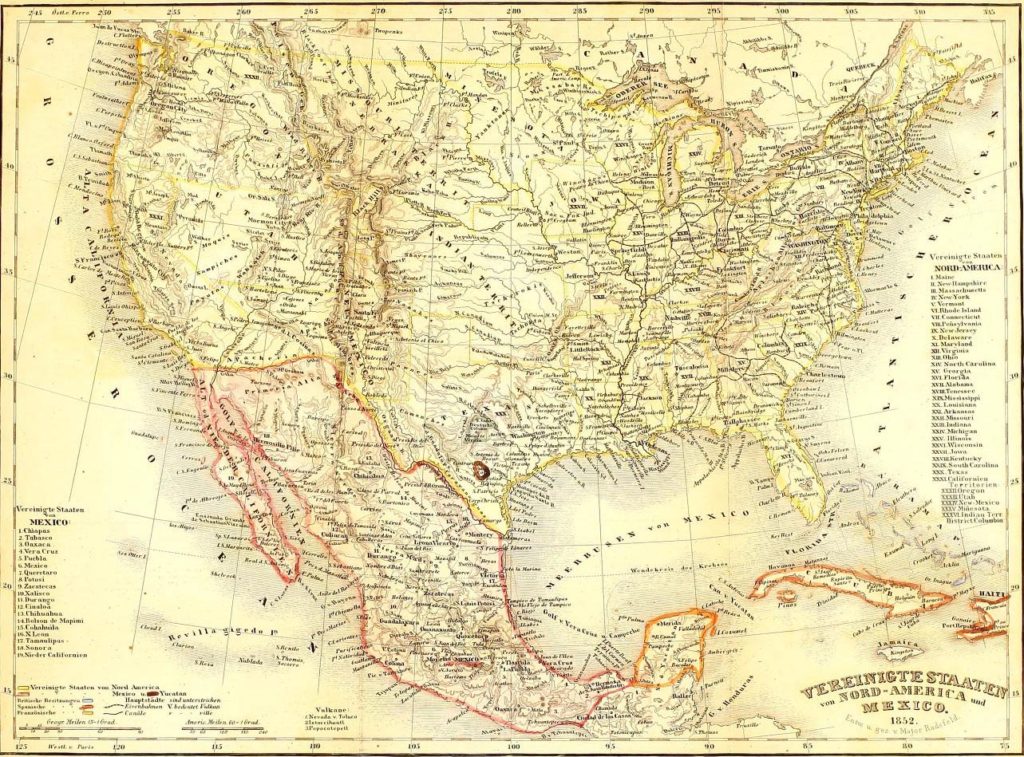
“One War at a Time”: Abraham Lincoln and the Monroe Doctrine in Latin America
by Jason H. SilvermanJason H. Silverman Vereinigte Staaten von Nord-America und Mexico, 71200908501056 The darkening clouds of Civil War were not all the portentous developments that newly elected Abraham Lincoln faced when he arrived in Washington, DC. With the United States seemingly weakened by deep internal divisions, the European empires made one last attempt to regain their hold […]
Read More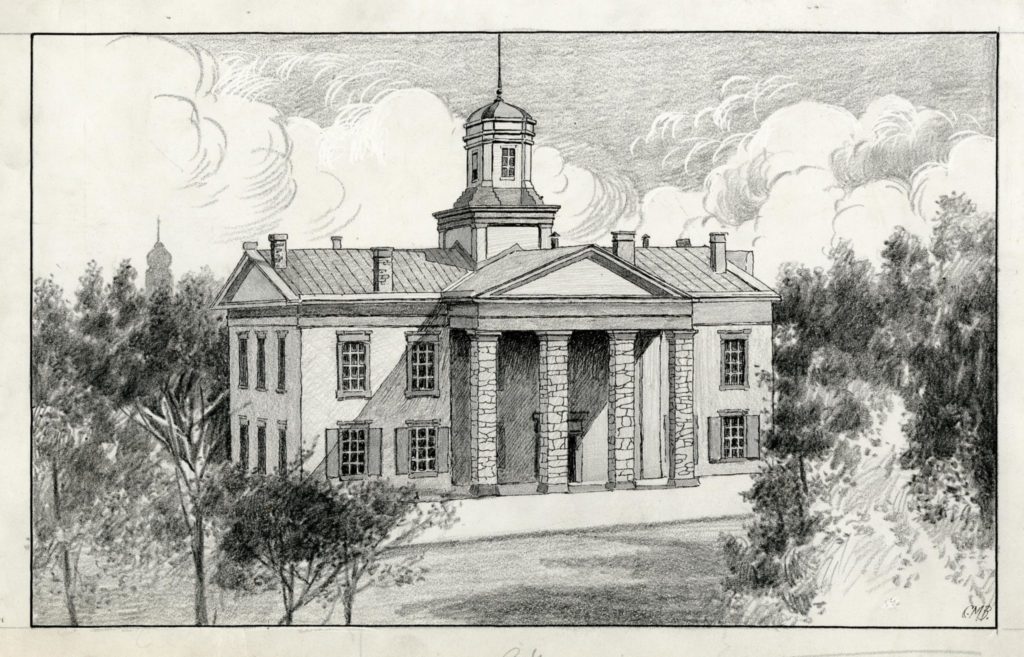
Lincoln and the South
by E. Phelps Gayby E. Phelps Gay Birthplace cabin, 7120090811753 How did Lincoln view the South? What did he know about the South? Had he been to the South? Did he hate the South? Or, instead, did he like Southerners? Did he blame them for the evil institution of slavery? Did he see himself, as many Northerners did […]
Read More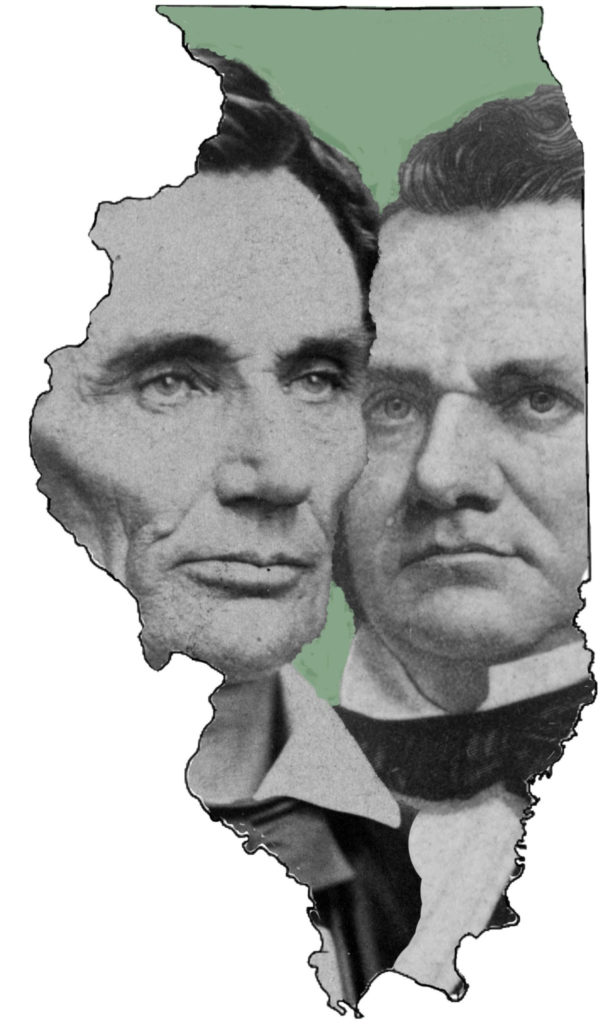
The Debate over the Debates: Debating Those Debates: The Historians Weigh In
by Douglas L. Wilson, Edna Greene, Frank J. Williams, Harold HolzerModerated by Harold Holzer A public sensation in the seven Illinois towns that hosted them—reprinted in the press at the time, in book form shortly thereafter, and in many editions since—the 1858 Lincoln-Douglas debates are remembered today, 160 years after they took place, as a political and cultural phenomenon. But as much as they attracted […]
Read More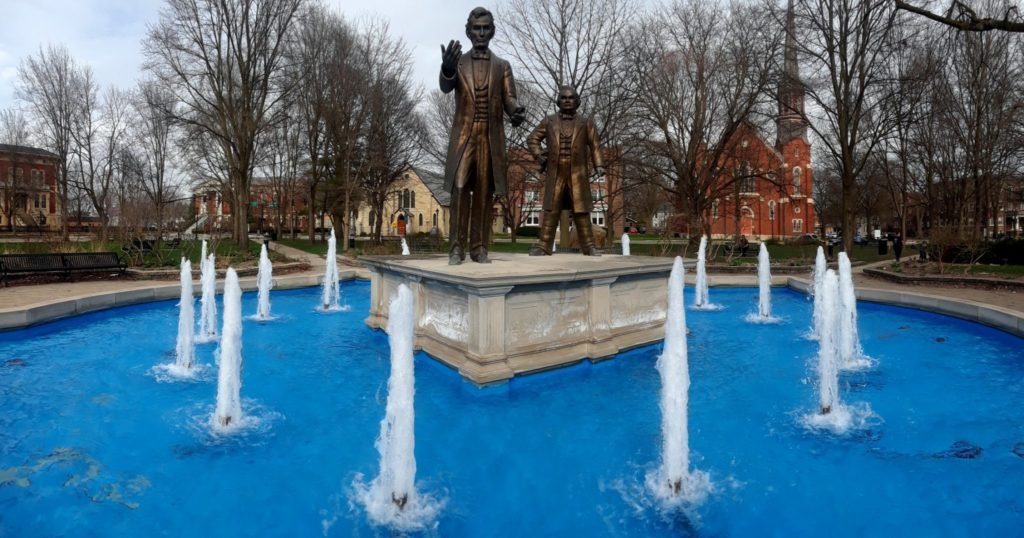
What I Did Last Summer: Ed Breen, Vice President of the Friends of the Lincoln Collection, Visits the Lincoln-Douglas Debate Sites
by Ed BreenBy Ed Breen Charleston Joe Judd sat behind the counter of his used book store at 303 Lincoln Avenue on the west side of Charleston, Illinois, and talked about what it meant to him and others in town that their town was among the seven communities across the Illinois landscape where the future of the […]
Read More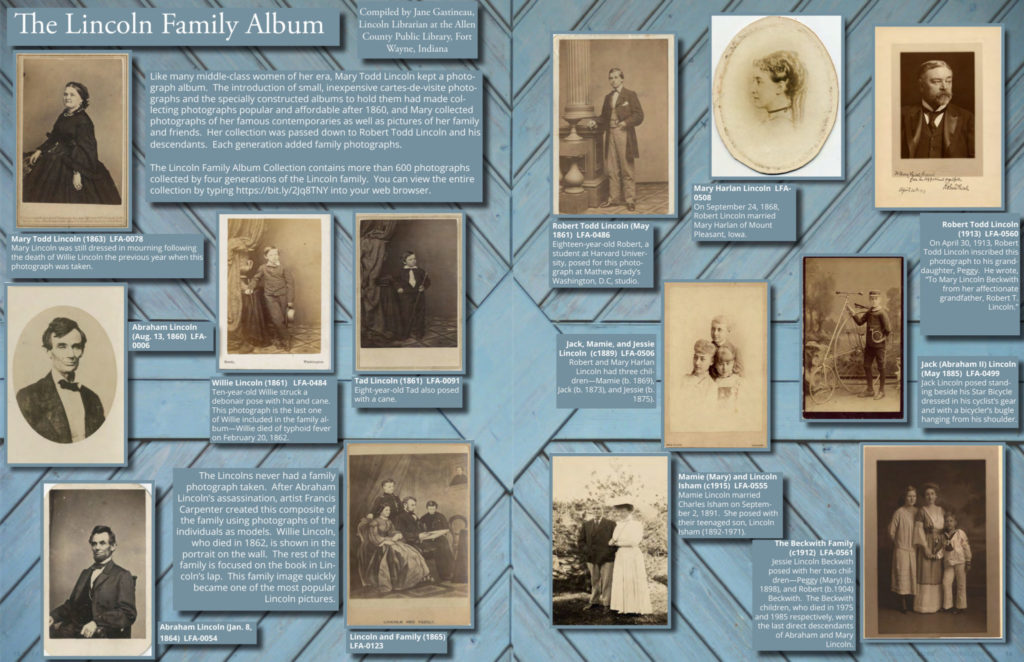
From The Collection: Lincoln Family Album
by Jane GastineauTo see a higher quality image of the article above, click on the photo and a larger file will open in a new window.
Read More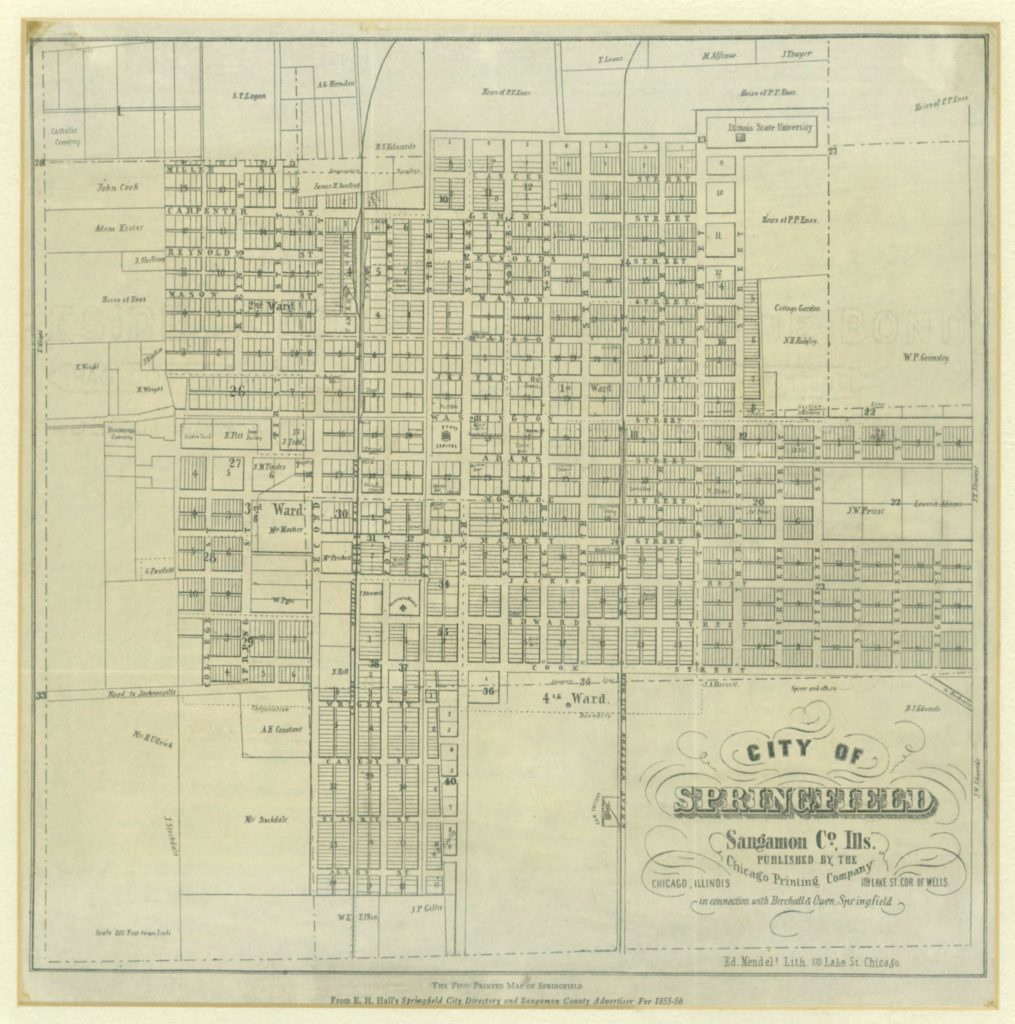
Entertainment in Lincoln’s Springfield (1834-1860)
by Richard E. HartBy Richard E. Hart This essay is a summary of the book Entertainment in Lincoln’s Springfield (1834-1860) by Richard E. Hart and published by the Abraham Lincoln Association in November of 2017. The public entertainments within a community are a good barometer of how its residents use their free time and what type of entertainments […]
Read More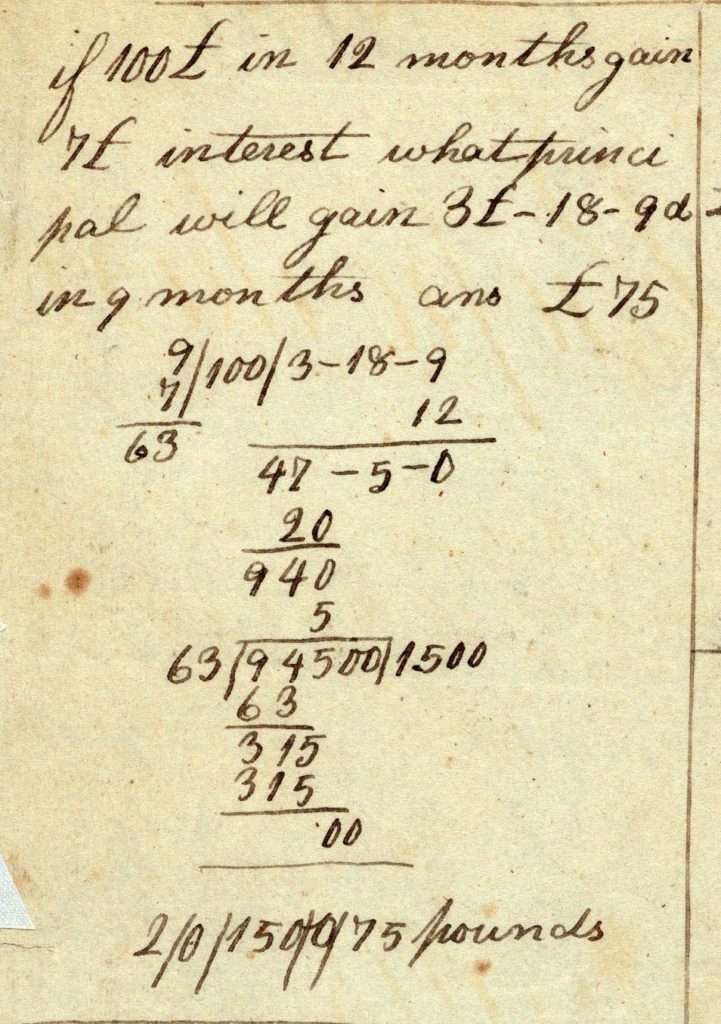
Abraham Lincoln’s Cyphering Book
by Nerida Ellerston and M.A. Clementsby Nerida F. Ellerton and M.A. (Ken) Clements The oldest extant handwritten manuscript of Abraham Lincoln is his cyphering book, which comprised written solutions to arithmetic problems that he solved when he was at school. The most detailed description and analysis of the manuscript is to be found in chapter 6 of our book, Abraham […]
Read More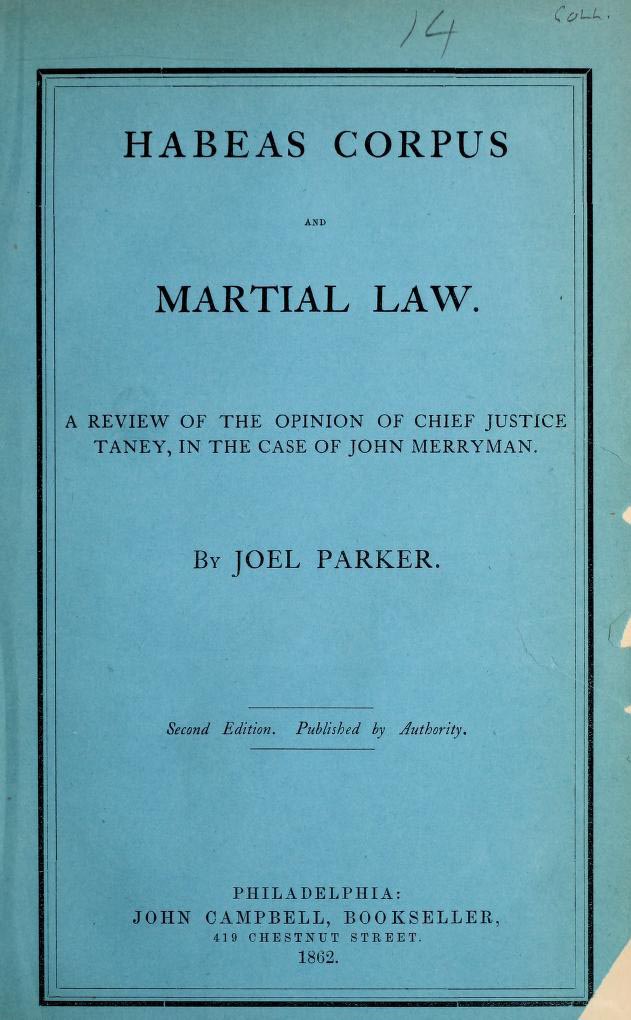
Abraham Lincoln on Civil Liberties
by Frank J. WilliamsBy Hon. Frank J. Williams Imagine, if you will, that the United States suffers an unexpected attack. The president deploys the armed forces and assumes extraordinary powers that go well beyond what the Constitution seems to allow. Thousands of persons suspected of aiding the enemy are arrested and held without charge, or tried before military […]
Read More
